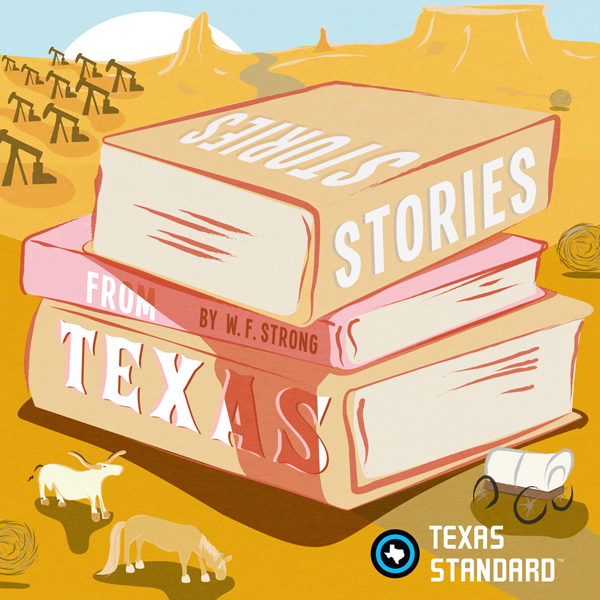On the western side of the Panhandle, right on the Texas/New Mexico border are two towns that were established just a few years apart in the late 1800s. They were separated by a line as thin as a goal line. They both still exist today — with populations of less than 1,500 each. But Texas Standard commentator W.F. Strong says their beginnings were very different.
The full transcript of this episode of Stories from Texas is available on the KUT & KUTX Studio website. The transcript is also available as subtitles or captions on some podcast apps.
WF Strong [00:00:00] This is a tale of two towns that were established just a few years apart along the Texas New Mexico border on the western side of the Panhandle. They were separated by a line as thin as a goal line. Texaco on the New Mexico side sprung up first as a boomtown. Along the new railroad line in the late 1800s. It had a reputation for being one of the wildest towns in the West. Its gambling halls and bars and brothels were built on an untitled strip of property called the Unserved strip. Then a few years later came Farwell, Texas, just a few feet away across the border, which was better built on title lands and far more conservative. It was the best of times. It was the worst of times. The law of the period claimed that Farwell stole the town of Texaco almost overnight. It is a large claim, but not without merit. Here is how it happened. Texaco was a boomtown of squatters. Shacks of wood sprung up quickly and haphazardly on land. They claimed by just building on it. The shacks were not big, about the size of your average. She shared that you find in backyards around Texas today. They had dirt floors and could be moved easily with just a few people to pick them up and walk them down the dusty street to a better location and a better view. It was said that the squatters could go to sleep happy with their new home. Thinking of the garden they would plant and the next morning they’d wake up to greet a new neighbor whose shack was sitting where their dreamed of garden was supposed to go in. But with no surveyed lots and no titles, it was difficult to claim ownership of anything. A writer for Cosmopolitan magazine, Eleanor Gates, came to visit these most cosmopolitan twin towns at the turn of the last century. She listed the businesses along one side of the street and Texaco like so Gambling Hill Restaurant, Saloon, Billiard Parlor, Jewelry shop, Livery, stable saloon. On the other side of the street were three gambling hills as she described them, two saloons, a bank and an ice cream shop. The buildings were unattractive, made of poor wood, showed their rafters inside and had roofs of rusting corrugated iron. These businesses were full of unsavory characters and poor souls looking for good pay, working on the railroad. In contrast to this rootless world sprung up Farwell, Texas, a planned community of sorts named for the Farwell brothers of the Excite Ranch fame. There was money behind Farwell well-built buildings of fine brick rose above the prairie, a bank to churches, a school, a laundry, a drugstore, a lumber yard and a nice house. Little white markers that identified table lots could plainly be seen by the squatters. Over in Texaco, there was a permanence to this new town. And no gambling halls, dance halls, saloons or such. A much better place for a future. A place for raising a family. It wasn’t long until the men of Texaco started getting their buddies to help them walk their shacks over to set them down on newly acquired title lots in Farwell. A grand exodus happened quickly with Texaco citizens moving to Farwell, a land of promise. The Cosmo writer concluded that the lack of land titles in Texaco had rendered her steel able. For Wales town manager increased the pressure on Texaco by publicizing plans for a courthouse with grass and trees and a $30,000 hotel to be built next door to it. The locals were seeing shades of Chicago and what was happening in Farwell while feeling that Texaco would soon be dust in the wind. Even though Texaco shrank substantially, it didn’t die. People in our world didn’t forget the good times they once enjoyed in Texaco. Some of them stepped across the border, often when they wished to cut loose and enjoyed dancing and drinking and gambling. Perhaps there was even a saying back then What happens in Texaco stays in Texaco. I’m WF Strong. These are stories from Texas. Some of them are true.
This transcript was transcribed by AI, and lightly edited by a human. Accuracy may vary. This text may be revised in the future.





